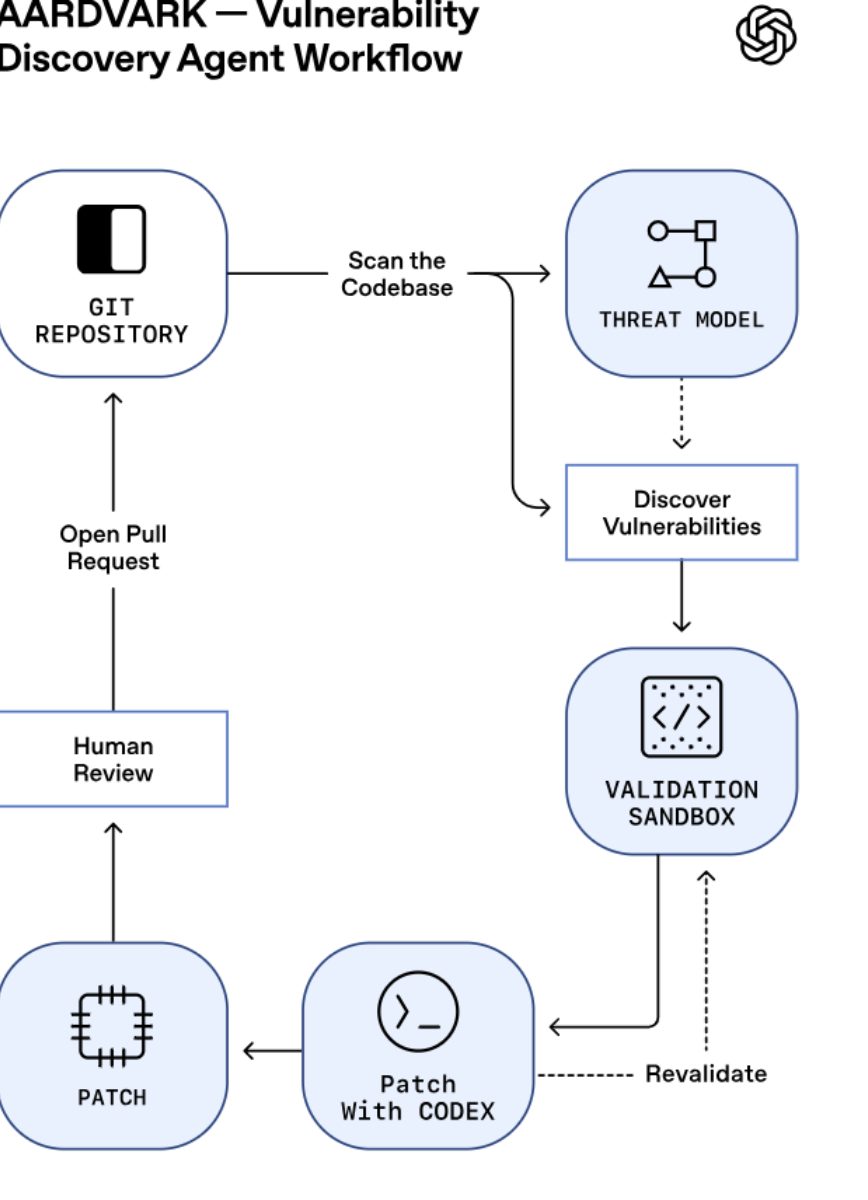In today’s digital world, software security is one of the biggest challenges for companies and developers. Every year, thousands of new security flaws, known as vulnerabilities, are discovered in different apps and systems. These weaknesses can allow hackers to break in, steal data, or damage important systems. To tackle this growing problem, OpenAI has introduced Aardvark, a powerful AI-based security researcher. Aardvark is designed to think and work like a human security expert; it studies code, finds potential bugs, and even suggests fixes. It doesn't just rely on traditional tools; instead, it uses advanced reasoning to understand how software actually behaves. The goal is simple yet game-changing: make it easier and faster to find and fix problems before hackers can take advantage. Aardvark is currently available in private beta, helping OpenAI and partner developers strengthen their digital defenses.
Check out: 1X Neo Humanoid Robot in U.S.: Check Home Assistant Learning Chores via Teleoperation!
What is Aardvark?
Aardvark is an autonomous AI security agent created by OpenAI and powered by GPT-5. It works as a digital security researcher that can automatically detect and fix software vulnerabilities. In simple terms, it’s like having a 24/7 security expert who never gets tired and constantly watches over your code.
Unlike traditional security tools that rely on basic scanning or fuzzing, Aardvark actually understands the code. It reads it line by line, finds where problems might occur, tests those areas, and even creates ready-to-use patches to fix them.
How Aardvark Works?
Aardvark works through a multi-step process that mimics how real security researchers operate:
1. Analysis: It starts by studying the entire project to understand what the software does and what parts might be at risk. This step helps it build a “threat model”, a map of potential dangers in the code.
2. Commit Scanning: Every time developers make a new change (known as a “commit”), Aardvark checks it for possible issues. It scans the latest updates and compares them with the overall code to catch new vulnerabilities early.
3. Validation: Once it identifies a possible bug, Aardvark runs tests in a safe, isolated environment called a sandbox, to see if the problem can really be exploited. This step reduces false alarms and ensures the results are accurate.
4. Patching: After confirming the vulnerability, Aardvark automatically suggests a fix using OpenAI’s Codex model. It creates a patch that developers can review and apply with a single click.
The best part? It works smoothly with platforms like GitHub, so developers can continue their normal workflow while Aardvark quietly strengthens the system in the background.

Real Impact and Results
OpenAI has already been using Aardvark across its own internal codebases and with select external partners. The results have been impressive. Aardvark has detected hidden issues that even experienced human reviewers missed, especially those that only appear in complex situations.
In testing, Aardvark identified 92% of known and newly introduced vulnerabilities, showing just how powerful and reliable it can be. Beyond security, it has also caught other bugs, such as logic flaws, incomplete fixes, and privacy-related errors.
Aardvark and Open Source
Aardvark isn’t just for big tech companies; it is also being used to improve open-source software, which powers much of the internet today. So far, Aardvark has found and responsibly reported several vulnerabilities in open-source projects, with at least ten of them officially recognized with CVE (Common Vulnerabilities and Exposures) identifiers.
OpenAI plans to offer pro-bono scanning for select non-commercial open-source projects. This means smaller developers and communities can also benefit from world-class security checks, making the entire software ecosystem safer.
Why Aardvark Matters
Every piece of software, from banking apps to hospital systems, depends on secure code. A single vulnerability can lead to massive data leaks, financial losses, or even risks to public safety. In 2024 alone, over 40,000 new vulnerabilities were reported worldwide.
That’s where Aardvark steps in. Finding and fixing bugs early before they reach production, helps companies prevent potential disasters. It acts like a guardian for developers, keeping systems safe without slowing down innovation.
More importantly, Aardvark represents a shift towards defender-first security, where technology proactively protects systems instead of reacting after the damage is done.
Check out: OpenAI Launches ChatGPT Atlas: Check Features, Availability, and Details Here!
Conclusion
OpenAI’s Aardvark could redefine how we think about cybersecurity. By combining deep code understanding, continuous monitoring, and intelligent patching, it bridges the gap between human expertise and AI efficiency. As it continues to evolve, Aardvark might just become an essential teammate for every developer, making the digital world safer, smarter, and stronger than ever before.
Comments
All Comments (0)
Join the conversation